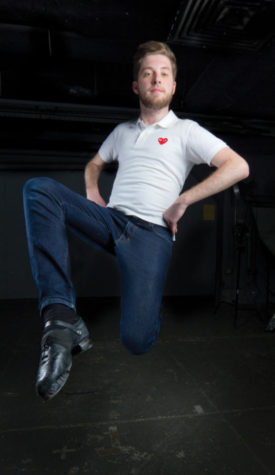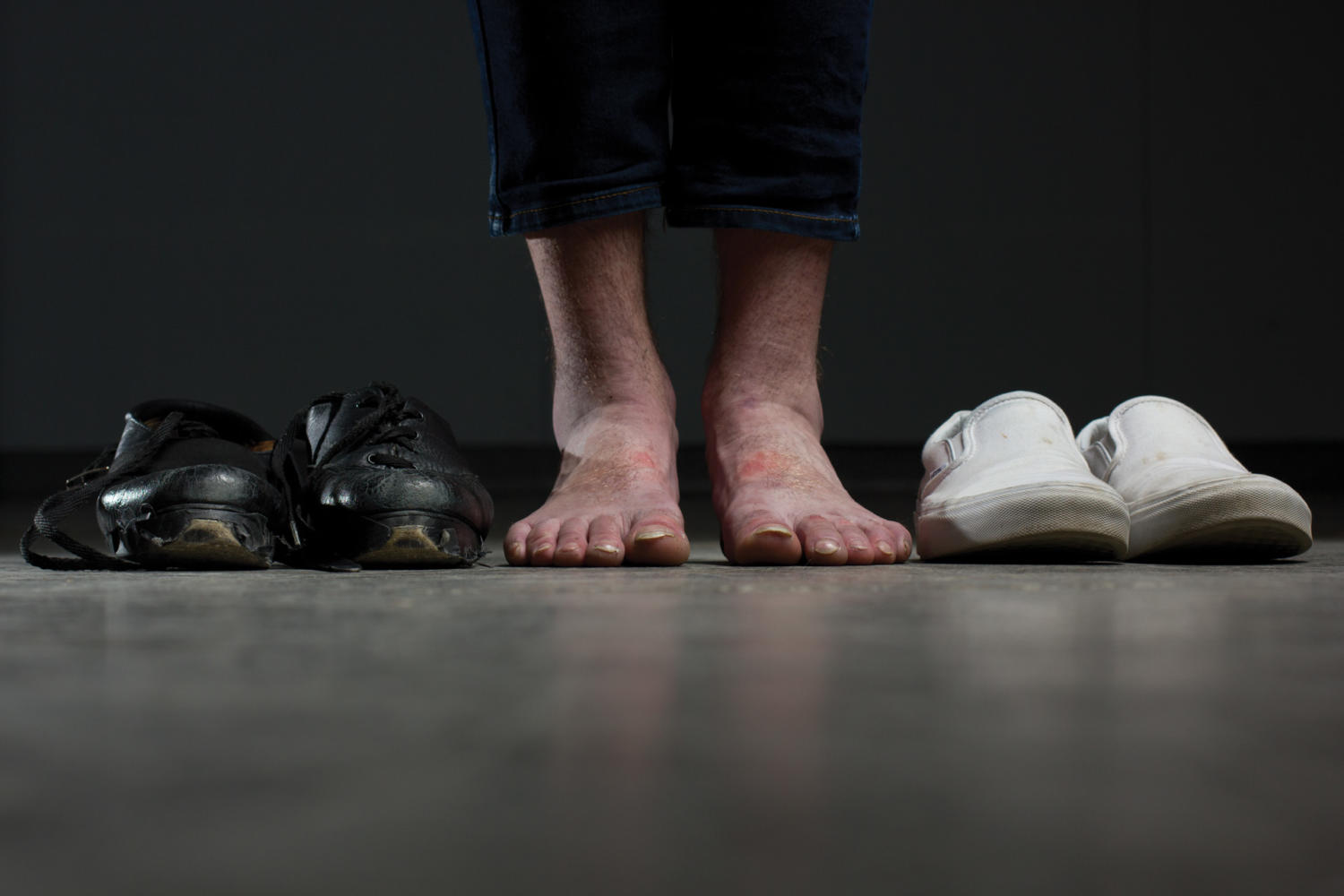When Derek Stillman held the stage at the World Irish Dance Competition, he showed the judges the perfectionism accompanying his rigid form and mountainous personal expectations.
What the judges didn’t know is that Stillman, third-generation Irish, was competing with a broken back.
What the judges didn’t know is that Stillman, third-generation Irish, was competing with a broken back.
“I was kind of like ‘Ha ha! Look at me,’ but dying at the same time,” Stillman said.
His broken back went undiagnosed, but has been ever-present since 2007, and drugstore painkillers erected his board-stiff posture — a requirement of Irish dance. The doctors, who finally discovered the break in 2009, issued a brace and ordered a studio hiatus that Stillman couldn’t yet obey.
Hellbent on choosing his love over his health, Stillman danced on, taking home “the big globe trophy” with his team in Philadelphia a month later.
“Everyone always says, ‘Don’t be a baby. Don’t complain,’ so I was dancing with the broken back,” Stillman said. “You do crazy things for what you love.”
Stillman, a 23-year-old junior studying digital media, professional communications and Chinese, has been Irish dancing for two decades.
He mimicked the film adaptation of "Riverdance" in his living room before he was old enough to enroll at the Murphy Irish Arts Center in Ohio. After a childhood of international competitions and Thanksgiving meals at airport McDonald's, he continued pursuing the art at Burke Conroy School of Irish Dance in Squirrel Hill after starting at Pitt in 2009.
“Irish dance was a way to define who I was at a young age. They say everything is a melting pot in America, but I’ve never been one to melt,” Stillman said. “Through dance, I was able to ground my Irish roots.”
Performing instilled confidence in Stillman and made him a popular mega-extrovert, but it sent him a bill. After spending thousands and enduring long-term health effects and sacrifices, Stillman often asked himself why he kept dancing.
“When I look around my trophies at home, I think how many thousands of dollars have gone into that, and now, it’s like, OK, I got some trophies,” Stillman said.
The metal and the break ushered in a lull in Stillman’s competing that survives today. The painkillers disintegrated Stillman’s stomach lining, slashing his weight to 90 pounds and halting his first fall semester.
Fueled by Pepsi Max, the still “fast-paced and caffeine-based” Stillman used the time off from competing to pursue internships at casting agencies and fashion houses, while spending his summers teaching Irish dancing and English abroad at East China Normal University.

Once school let out, Stillman tried to return to America, but fainted in the airport. After doctors diagnosed him with “twisted bowel syndrome” at the hospital, he underwent emergency surgery.
“I had to call my mom … like this might not be it, but it could be the end,” Stillman said.
Stillman returned home and missed the fall 2013 semester, extending his undergraduate career even longer and keeping his misshapen dancer’s feet away from the professional stage.
“Irish dancing is not natural. Dance in general is not natural. That’s often why dancers have so many injuries,” Stillman said. “I can’t tell you how many friends I’ve seen snap their ankles.”
Then the call came.
A touring Irish dance show offered Stillman a spot on its team. Stillman had to decide if he should roll through the routine — college, internships, the job market — or take a leap of faith.
“One day, I’ll wake up and I’ll say, ‘I’m doing it. This is it.’ And then, one day I’ll wake up and say, ‘no, don’t do that,’” Stillman said.
Undecided, Stillman began training again, choreographing his options.

He could make a living from touring, but not the life he likes to live. A fashion-forward jet-setter who spends more weekends abroad than on campus, his high kicks would never offer him the luxury kickbacks that he’s grown to crave.
“The crazy thing about all of this is that there is no money. There are no scholarships. You do it because you love it,” Stillman said. “I can tell people [that] me and my team are ranked third in the world. OK, now what?”
While on top of the acropolis looking out over Athens during spring break, Stillman plucked his fortune, saying to himself:
“You know what? Finish school.”
Picking the option that “will open up doors,” Stillman looked ahead to see how his skills and their health effects will manifest into his life’s dance.
“I just decided it was really going to derail my life. It’s happened to me so many times already,” Stillman said. “The touring show will always be there. I kind of just need to put myself first, finish it, move on.”
